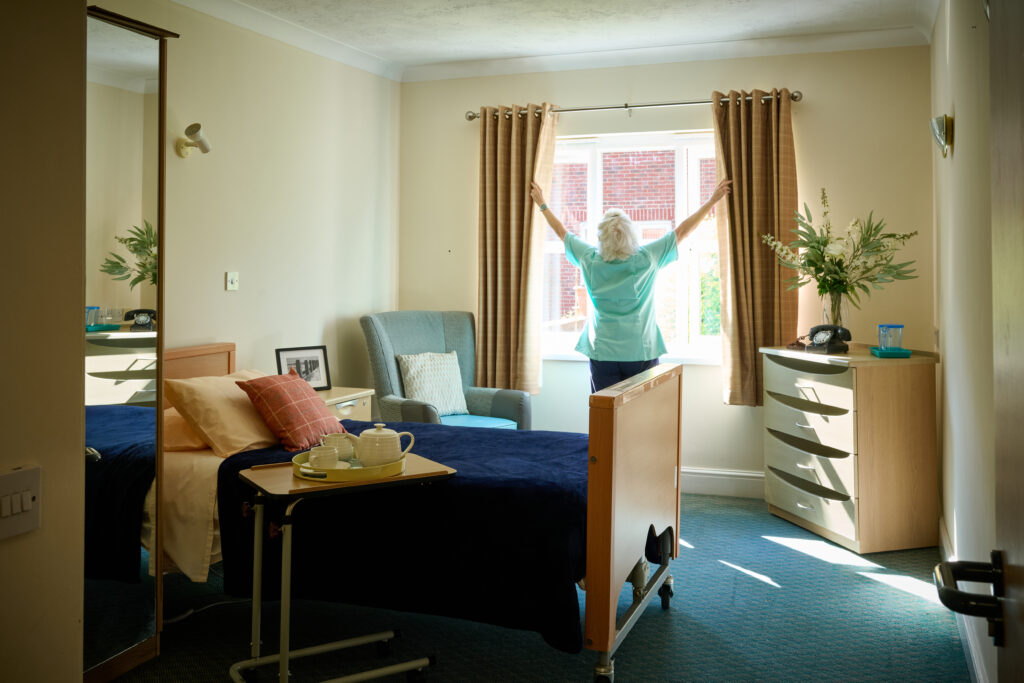Caring for someone with dementia can feel overwhelming at times. With more people living with dementia across the UK, many families in West Sussex are asking how best to support their loved ones. At Derwent Lodge Care Home, we specialise in dementia care and understand the challenges families face. This guide offers an overview of dementia, key signs to look out for, and practical advice for providing support.
What is Dementia?
Dementia is not a single illness but a term used to describe a range of conditions that affect memory, thinking, and daily life. Over time, dementia can impact independence, relationships, and emotional wellbeing, making early understanding and planning essential.
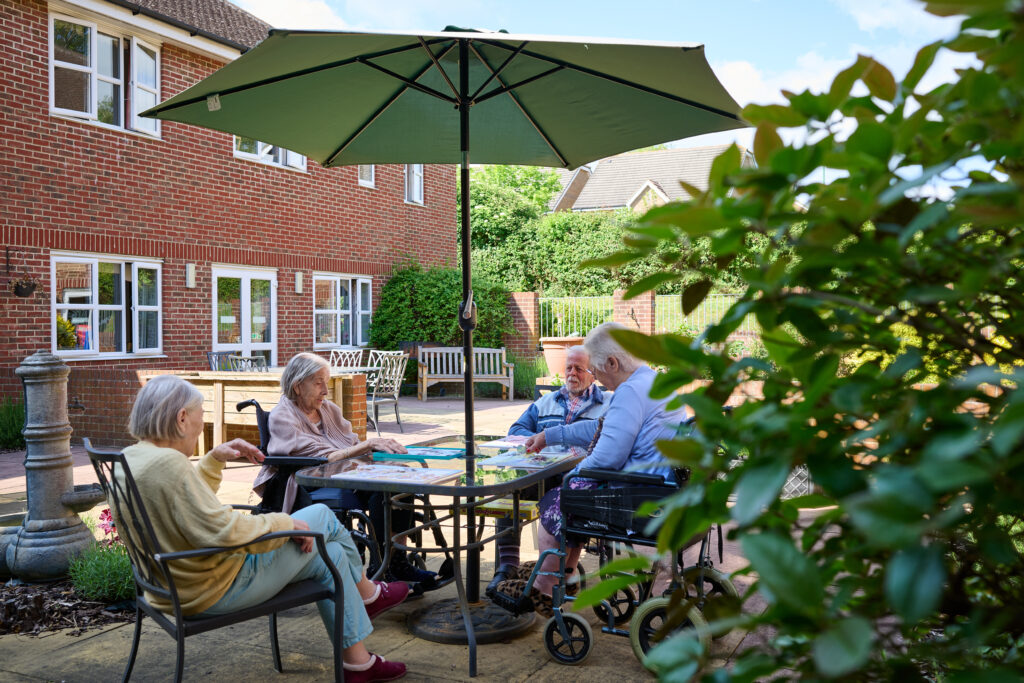
Main Types of Dementia
The most common forms include:
- Alzheimer’s disease: gradual decline in memory and cognitive ability.
- Vascular dementia: caused by reduced blood flow to the brain, sometimes after a stroke.
- Lewy body dementia: linked to hallucinations, sleep difficulties, and movement changes.
- Frontotemporal dementia: affecting personality, behaviour, and language.
Recognising which type of dementia a person has helps in tailoring care to their individual needs.
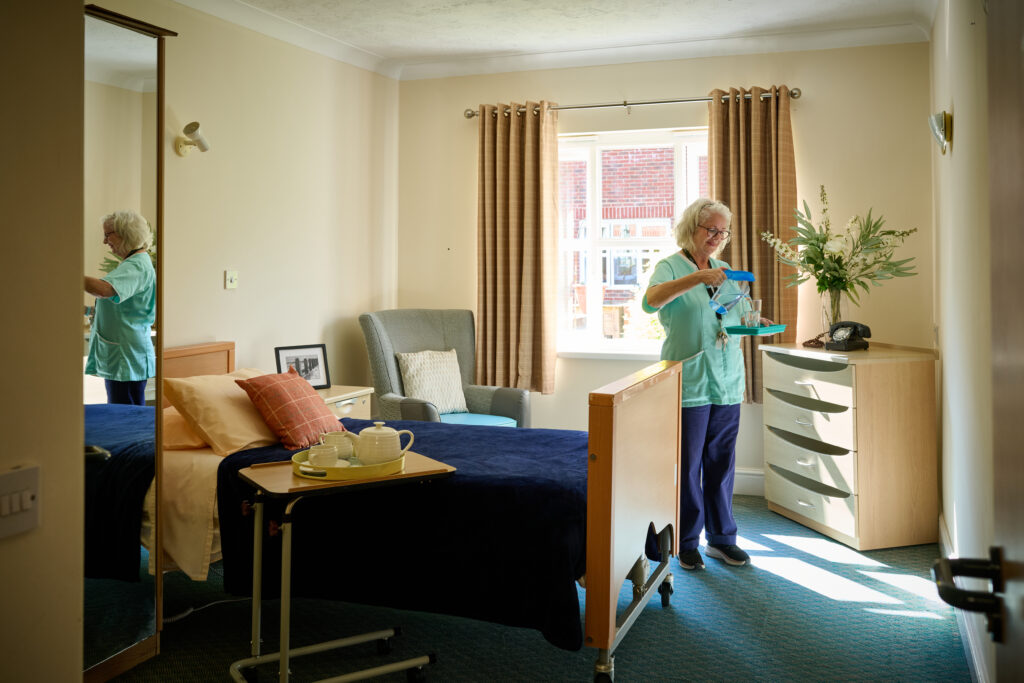
Recognising the Signs
Although memory loss is the most widely known symptom, dementia can show itself in many ways. Common early signs include:
- Forgetting recent events or conversations.
- Struggling to find words or follow conversations.
- Confusion about time or place.
- Difficulty with familiar tasks like cooking or managing money.
- Mood or behaviour changes.
If you notice these patterns, it’s important to seek medical advice as early diagnosis can open up valuable support.
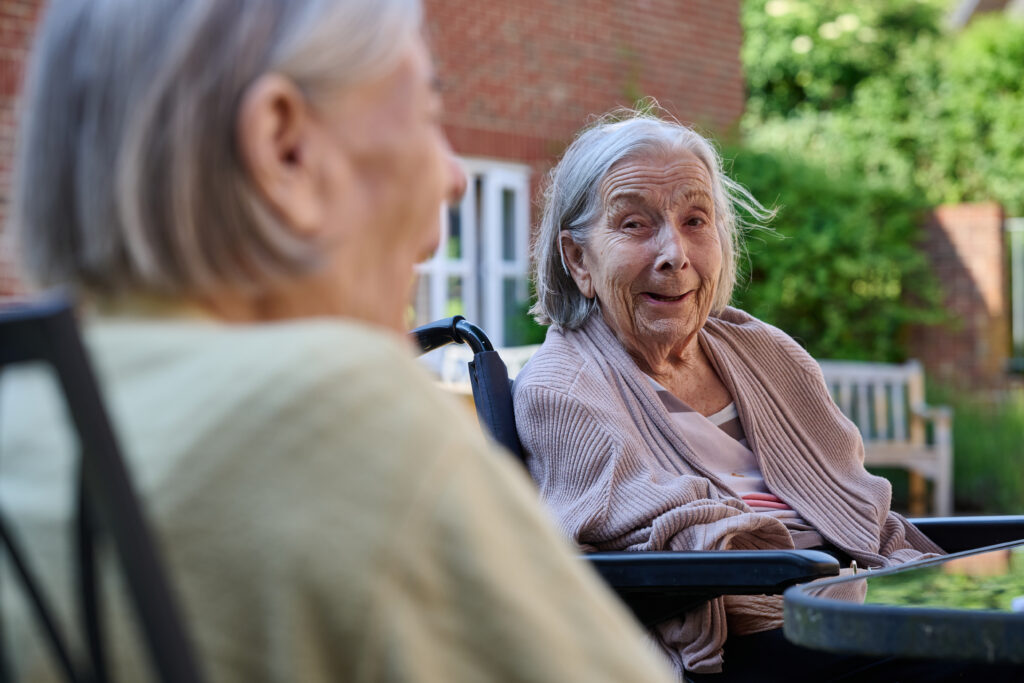
Stages of Dementia
Dementia usually progresses gradually:
- Early stage – mild memory loss and independence with some support.
- Middle stage – noticeable behavioural changes and increased need for help with daily activities.
- Later stage – significant memory and communication challenges, with full-time care often required.
Understanding these stages helps families plan for the future with greater confidence.
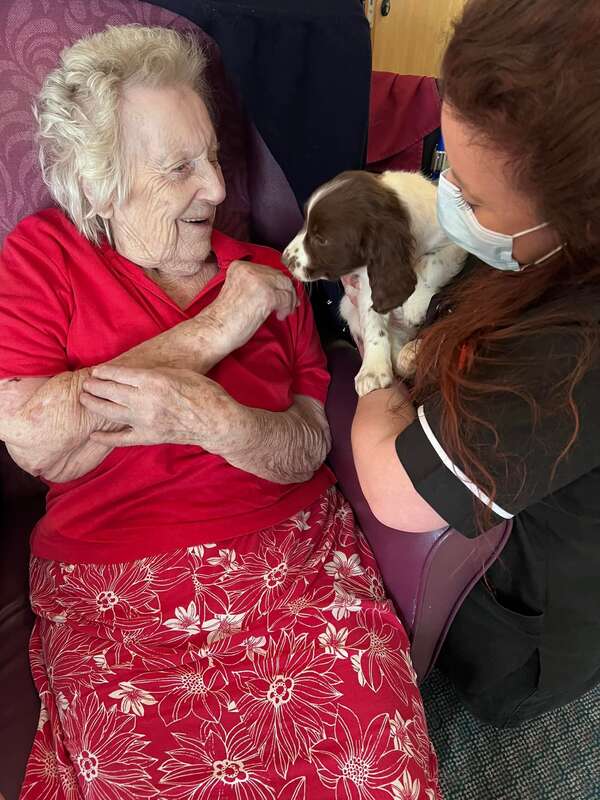
Practical Ways to Support Someone with Dementia
Supporting someone with dementia often means balancing independence with safety and comfort. Helpful strategies include:
- Encouraging independence – breaking tasks into smaller steps so your loved one can stay involved.
- Creating a safe environment – clear labelling, simple layouts, and hazard-free spaces.
- Maintaining routine – familiar daily patterns reduce confusion and promote reassurance.
- Using calm communication – clear, simple sentences, eye contact, and patience can make a big difference.
- Offering emotional support – recognising that changes in behaviour are part of the condition and responding with empathy.
Simple activities such as listening to music, walking in nature, or creative hobbies can also bring comfort and stimulation.

When Care at Home Becomes Difficult
As dementia progresses, caring for a loved one at home can become more challenging. Families often turn to professional care when support needs increase, or when the wellbeing of the carer is at risk. Respite care can provide short-term relief, while moving to a specialist care home may be the best long-term option for safety and quality of life.

Dementia Care at Derwent Lodge
At Derwent Lodge Care Home, we provide compassionate, person-centred dementia care in a safe and welcoming environment. Our experienced team is trained to support residents through every stage of dementia, helping them live with dignity while giving families peace of mind.
We know that every journey with dementia is unique. That’s why we take the time to get to know each individual, tailoring activities, routines, and care plans to their needs.
If you would like to learn more about our dementia care or arrange a visit, please contact our friendly team. We are here to support both you and your loved one every step of the way.
